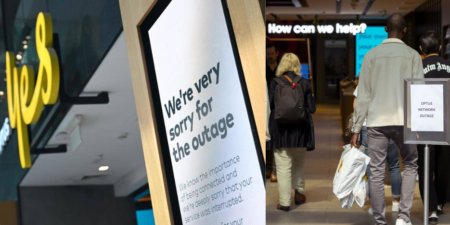The recent Optus outage left millions disconnected, but what are the consequences?
Optus Outage
It has been announced that Optus CEO Kelly Bayer Rosmarin has resigned. This follows a nationwide outage earlier this month that affected mobile, and home phone and internet services for approximately 10.2 million Optus customers and 400,000 businesses.
Last Friday, Bayer Rosmarin appeared before a Senate committee to respond to questions about the outage, as well as what will be done to prevent a similar blackout in future.
Optus has said that the outage was caused by system upgrades that had unforeseen consequences. Many Optus customers were left without mobile connectivity for up to 14 hours. For some, this was a mild inconvenience. For others, this put their lives at risk.
It has come to light that 228 Optus customers who attempted to call emergency services during the outage were unable to do so.
This is where Optus is really in hot water. Providers are required to ensure that their customers can call triple 0 using a mobile phone if they are in range of any available network, even if that network belongs to another provider.
If Optus is found to have breached their obligations as a critical infrastructure provider, they will be hit with massive fines.
In the meantime, customers have been offered bonus data to make up for the outage. Doesn’t really seem like enough, does it?
Other impacts
The impact of this situation was more significant than it might first appear. Businesses, hospitals, banking networks and rail networks were affected. Telehealth consultations were cancelled, on-call doctors could not be reached, and affected customers could not call emergency services.
During this time, some medical equipment such as glucose monitors and fall alert buttons were not operational.
People with disability found themselves stranded with no way to contact supports, and, in some cases, unable to even get out of bed. ‘Smart lights’ that are controlled using a mobile device would not work. Assistive technologies such as screen readers and voice-to-text devices that rely on internet access were inoperable, leaving Optus customers in the dark and unable to communicate.
In the case of regional, rural and remote communities, the loss of online and telephone services meant that people could not access their bank accounts or contact social services as many communities do not have access to a local branch or service centre.
Whilst Centrelink suspended mutual obligation requirements nationally for the day in response to the outage, who can say how many people went into a panic as they wondered if their payment would be suspended as they were unable to get through on the phone?
At the time of the outage, Optus advised customers to reach out to a family member or neighbour with an alternative device. But if you live out of the city or have mobility issues, and your home phone and mobile are both with Optus, where does this leave you?
In the digital age, many people rely on connected devices. Connectivity is no longer a luxury, it is a ‘must have’. As technology evolves and our society’s reliance on it increases, it is critical that we consider the responsibilities of telcos very carefully.
In the wake of the Optus outage, this has become more apparent than ever.
What next?
Advocates are calling for telcos to be required to share their networks under certain circumstances, such as a natural disaster or major outage. This would allow consumers to connect to whatever signal is available.
Similar legislation has been passed in Canada after a very similar scenario that left around 25% of the country disconnected from the internet.
This is already a requirement for emergency calls, but it is clear after this Optus debacle that there is more that needs to be done to ensure that this system is operational.
Consumer advocacy organisations have renewed their warnings about the need for resilient telecommunications systems that consider the needs of vulnerable customers, as well as planning for worst-case scenarios such as major disasters.
In the meantime, it might be a good idea to ensure that your household has access to different types of coverage. Perhaps a landline that uses a different provider to your mobile.
The outgoing Optus CEO has even admitted that she has acquired a Telstra device to use in an emergency. Not a good look, really.
In the meantime, Telstra is gaining customers en masse and will be laughing all the way to the bank. Hopefully they’ve made sure to double check their systems.
Where to find out more
If you would like to make a complaint about a telecommunications company, you can contact the Telecommunications Industry Ombudsman (TIO).
The Environment and Communications References Committee are expected to table a report on the Optus Outage by 9 December 2023, you can find more information on that here.
Other articles
- Are you ready for the end of 3G? It might be more important than you think
- Centrelink call wait times worse than ever
- Is Robodebt targeting pensioners now?
- Bush mobile coverage dealt blow by consumer regulator
- Ever wanted to complain about digital platforms?
